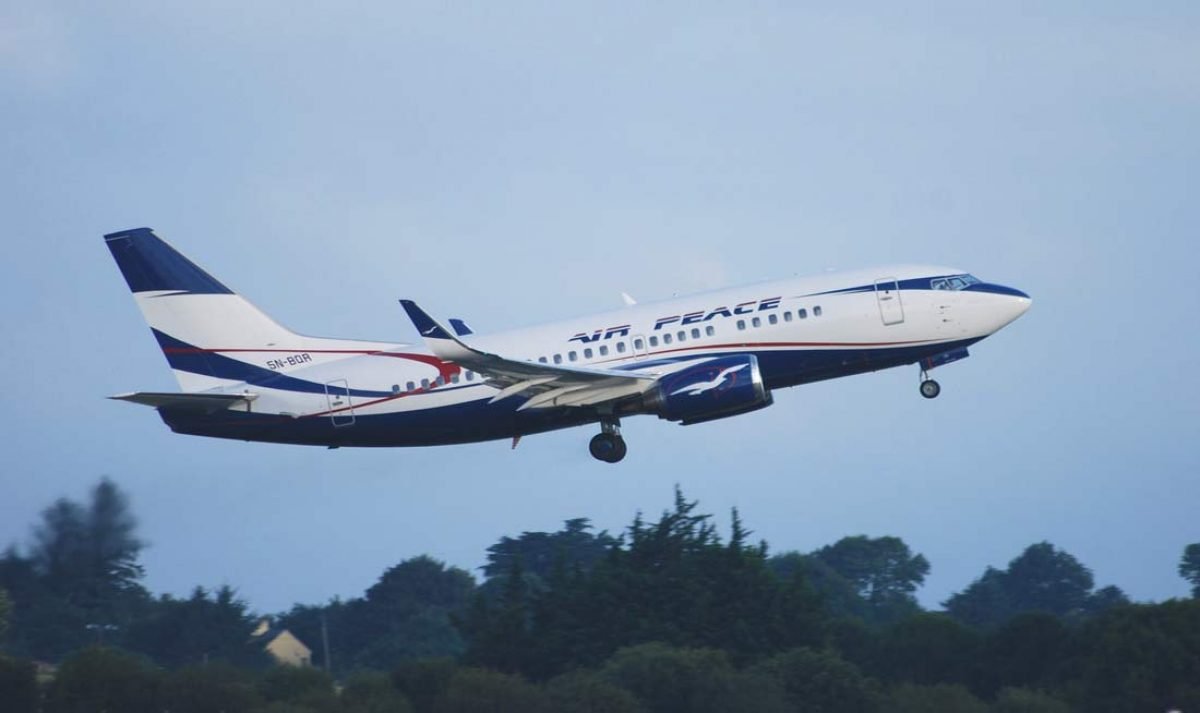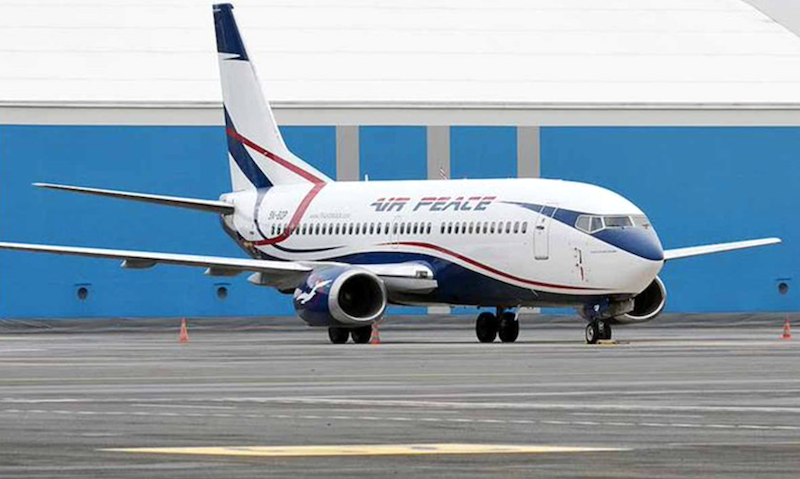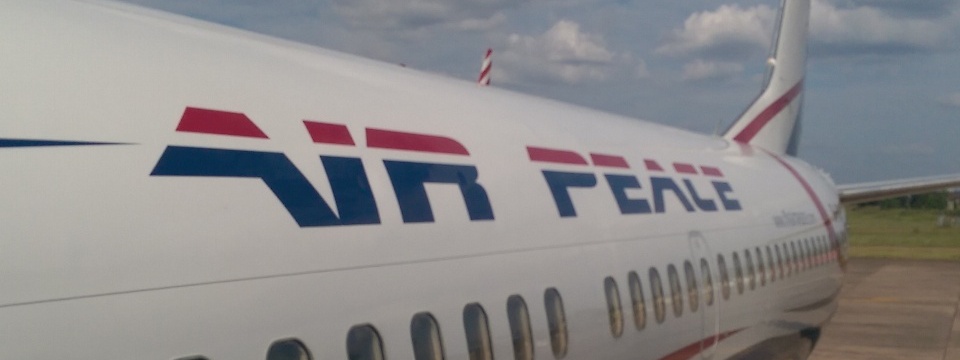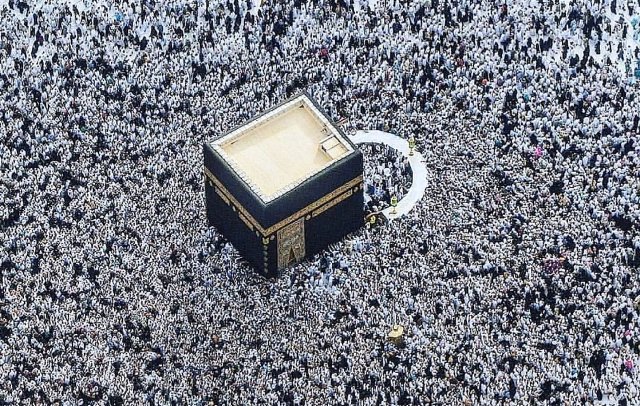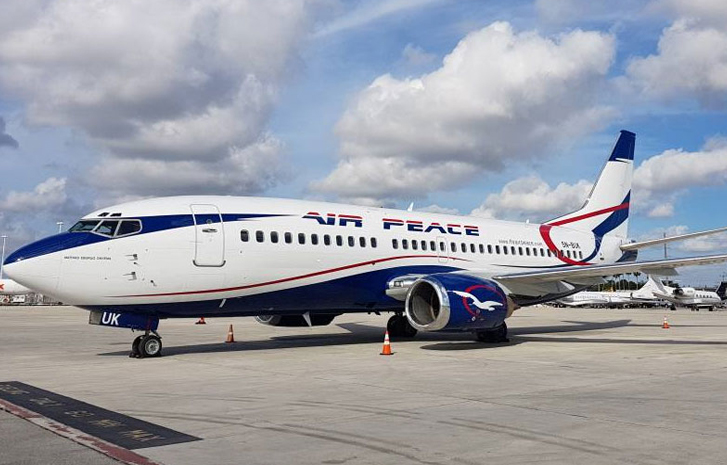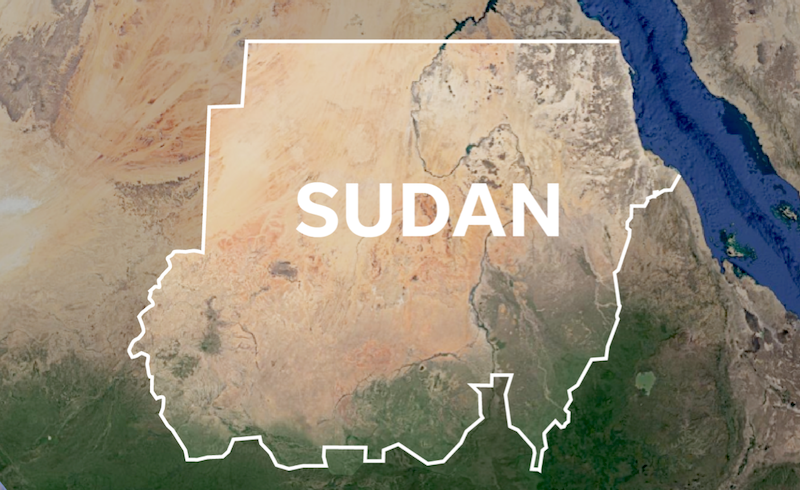Nigeria recently spent as much as N2.34 trillion in six months to service a humongous public debt that is currently in excess of N107 trillion that she is saddled with. That is why the country’s national budget of N27.5 trillion for 2024 has nearly half of it appropriated for settling the nation’s outstanding debt, which is comprised of local and international debt stock.
As such the high borrowing cost and rising debt are hindering Nigeria’s ability to finance its development agenda, because the huge amounts of public revenue that are allocated for debt servicing purposes could have been used to intervene in other critical sectors such as education, health care and housing that urgently require funding.
Based on statistics obtained from Nigeria’s Debt Management Office (DMO), the Brookings Institution, an American think tank, reckons that: “In 2022, an estimated 96% of the federal government’s revenue was allocated toward interest payments.” This year, that figure has risen to over 100%.
The American think tank then came to the following conclusion: “Understandably, debt servicing dwarfs investments in key sectors. In the 2023 national budget, the budget share for debt servicing is 29%, whereas the budget shares for education, health, and infrastructure are 8%, 5%, and 6%, respectively.”
Therein lies Nigeria’s dilemma of underdevelopment reflected by its status as a debtor nation whose lion’s share of resources or income is geared towards debt repayment as opposed to being invested in capital projects like infrastructure that generate income and help boost the economy.
As it may be recalled, until a couple of months ago, Nigeria had an unsettled foreign debt owed to international partners such as airlines, estimated to be in excess of $7 billion. The debt exposure was a source of ridicule to the country and caused embarrassment to Nigerian travelers who were denied services such as the purchase of airline tickets in naira by international airlines and similar organizations whose funds got trapped in Nigeria as the CBN could not remit their funds back to their country.
Similarly, the import bill of Nigeria as at the end of 2023 rose up to a whopping N14 trillion in the last three (3) months of the year, which is a phenomenon that experts have also attributed to depreciation of the naira when the Nigerian currency got floated.
Available records show that Nigeria’s top four (4) goods imported the most are: (1) Motor spirit estimated at 22.71% of the total imports . (2) Gas oil, 8.71% costing . (3) Drum wheat, 3.92% cost(4) Cane sugar, 1.86%.
Remarkably, the cost of petroleum products is 22.71% or N1,921.03 billion, plus cost of gas, which is 8.71% or N736.66 billion brings the total value for the import of petroleum and gas oul alone to about 26% which amounts to over two trillion naira. The second-highest imported item is food.
Specifically, wheat, which is put at 3.92% or N331.76 billion, and cane sugar, whose import gulps 1.86% of our import budget with a naira value of N157.34 billion. When the two food items are added together, it would be revealed that a total of N500 billion or half a trillion is exported abroad to import food to enable us to feed ourselves.
To be clear, there other items that our country imports, but the four items listed above constitute the largest chunk of our gargantuan import bill.
What the statistics above reveals is that as of 2022/23, Nigeria was spending in excess of two trillion on importing petroleum products and over half a trillion on food imports, yet the nation still wallows in energy and food insecurity.
Fortunately, through the skillful management of the resources flowing into the country, since the inception of the current administration of president Bola Tinubu on May 29th of last year, debts to airlines, etc. have been settled after the current management team at the Central Bank of Nigeria (CBN), led by Mr. Yemi Cardoso, assumed leadership.
Be that as it may , the consequences of President Tinubu’s announcement signaling the end of the subsidy regime on petrol and the naira did not fail to have an initial negative effect on the purchasing power of a critical mass of Nigerians. These manifested as the hike in the price of Premium Motor Spirit (PMS) and the free fall of the naira, which inflicted severe hardships on vulnerable Nigerian masses.
But, by and large, those initial dire fallout are being reversed with the volume of petrol being imported into Nigeria, according to government sources, being reduced by as much as one million liters a day under President Tinubu’s watch, and crude oil production is being ramped up by about 500 million to 1.5 million barrels a day. The improvement in production is boosting foreign exchange income and thus stabilizing the naira, which was initially in a free fall.
With the 650,000 barrels per day Dangote refinery in Lekki, Lagos, coming on stream for local production of petrol in the past couple of months and Airpeace airline in the past one week commencing operations on Nigeria-UK lucrative routes previously monopolized by British airlines,Nigeria is poised to end the strangulation of her economy via the vice grip that Europe and indeed the West had on it by using their banking system, airlines, and petroleum refineries to control and tie our economy to their apron strings. Not many Nigerians realize that apart from corruption often touted as the bane of Nigerian economy, those unfair trade practices are part of what has kept Nigeria in a debt trap and perpetual slavery to the goods and services of the industrialized and advanced Western economies.
But the aforementioned disadvantages seem to be coming to an end with indigenous solutions providers such as Dangote Industries and Airpeace relieving the Nigerian economy from the strangulations foisted on her since the country was colonized by the British, who in 1914 amalgamated their northern and southern protectorates following the Berlin, Germany partitioning of Africa in 1885 by Europeans and allocation of what has today become Nigeria as largese to Britain for lack of a better term to characterize the scramble for and partioning Africa by european oppressors.
Now, the type of geopolitics and conspiracies underscored and narrated above have been ongoing since independence from colonialism and neocolonialism. But because it is sophisticated and nuanced, which is quite unlike the French introduction of the CFA currency and economic zone that enabled her to control the economies of her 15 former colonies via a tie to their umbelical cord, not many figured out why our economy has remained mired in debt despite the enormous natural and human resources that our nation is endowed with.
That is perhaps the reason that while the former French colonies are currently openly rebelling against the stranglehold on their economy by France by cutting ties with her , not much is talked about how Nigeria must remove the yoke of economic strangulation, which is akin to a yoke or harness that was placed on its neck by the Europeans, particularly her colonizer, Britain, via the control of our country’s banking system of which Nigeria got unschackled when British banks were nationalized.
That is one of the epochal events and part of the building blocks that Dangote and Airpeace are building upon in the annals of Nigeria’s journey to economic freedom by becoming major players in energy security through the production of the bulk of petrol required in Nigeria and the breaking of the monopoly of air transportation between Nigeria and Britain by insisting on the UK respecting international aviation protocol known as Bilateral Aviation Safety Agreement,BASA.
Is it not amazing that although our country had been granted independence by Britain in 1960, and Nigeria became a republic three years after, which is 1963, her economy was still tied to the apron strings of the United Kingdom and other Western countries whose banking institutions, such as Barclays Bank, were controlling the Nigerian economy?
Until the military regime of Gen. Olusegun Obasanjo in 1978, demonstrated its disapproval of the practice of white minority rule over the black majority in South Africa—a governance system known as apartheid-by nationalizing the assets of the Western countries buffeting South Africa in its practice of apartheid, banks in Nigeria were basically controlled from London, Paris and New york head offices.
Records have it that Western nations such as Britain and the United States of America (USA) were complicit in the practice of apartheid through various means.
This included purchasing bonds from apartheid South Africa.
Consequently, Nigeria’s military head of state at that time Gen. Olusegun Obasanjo , (OBJ)had to nationalize British-owned Barclays Bank and transformed it into Union Bank of Nigeria, (UBN) and also restructured the former British Bank for West Africa (established in 1894) and the British and French Bank Ltd (BFB), co-owned by the French and founded in 1949, into United Bank for Africa, (UBA).
Prior to taking the measures above , the Nigerian economy resembled a horse with a bridle over its mouth, controlled by European and American financial institutions from London, Paris and New York.
Of course, there were consequences for what the superpowers deemed to be OBJ’s intransigence in breaking their economic stranglehold. They penalized Nigeria by precipitating the tanking of Nigeria’s economy by inducing a crash in the international price of crude oil, which is Nigeria’s main source of foreign exchange.
That reprisal action resulted in what infamously became known as the container armada (a flood of containers of imported goods stranded in the seaports), which defined the reign of Alhaji Shehu Shagari/Dr. Alex Ekwueme as president and vice president of Nigeria respectively , (1979-1983) both of whom are now of blessed memory.
The inability to clear the imported goods from the seaports due to the crash in the price of crude oil, resulting in negative foreign exchange earnings into the Nigerian economy, was basically part of the justification for the military coup d’état that toppled the democratically elected government in 1983 and set our country back, both politically and economically.
After the ouster of Shagari and Ekwueme, the political leadership was taken over by Generals Muhammadu Buhari/Tunde Idiagbon, who ruled with military diktat, setting the country back for another long period that ended in 1998 when General Sani Abacha, who succeeded another army General, Ibrahim Babangida, that had toppled Buhari and Idiagbon’s regime in 1985, suddenly died in office.
That was what paved the way for the emergence of another democratically elected government in 1999, with former army General Obasanjo enjoying a second chance at the helm of political affairs of Nigeria as a democratically elected president (1999-2007) after serving as a military dictator.
Fortuitously, in the 1990s, under the watch of General Babangida, the practice of banking in Nigeria was fully deregulated, thus opening up the space for independent investors to be issued banking licenses which is one of the reasons that our country developed enough competencies to, apart from South Africa be a leading nation in Africa extending banking services to fellow African countries.
Remarkably ,Nigerian banks achieved the feat inspite of the obstacles posed by the bureacracy which never cleared the path for their expansion internationally.
In fact in a media intervention focusing on Africapitalism, l had asserted that banks have achieved what the founding fathers of the defunct Organization of African Unity, (OAU), now African Union, (AU) failed to accomplish which is the integration of the 54 nations of the continent.
For a very long time ,one has been stressing how Nigeria’s public sector/ civil service structure is so anti-private sector investors as opposed to being pro-private sector as obtained in other climes such as the continents of Europe, the America’s and Asia where the bureaucracy functions only as a regulator not a competitor (which is the case in Nigeria) by making sure that the rules of the game are respected by all the players and equal playing field is provided for fair competion.
It is a general knowledge that without the aid of government, the chaebols in South Korea like Samsung, Daewoo, etc. would not have emerged as global icons that they are today.
Similarly, the US is keen on supporting Ford motors and other automobile manufacturers, which is why they were not allowed to die when they literally ran into financial rough waters and government under the watch of President Barack Obama had to bail them out by giving them financial life lines.
Without the support of the Chinese government, Huawei would not be such a global household name in telecommunications today.
We are all aware of the ongoing trade war raging between China and the US over the ban of TikTok owned by the Chinese from operating in the US unless it is sold to US investors or others.
How about the Electric Vehicles,EV war between China and the industrialised Western world stretching from Europe to the US wherein China which is churning out EVs like confetti and at much lower price is threatening Elon Musk’s Tesla pole position whose phenomenal sale is the key reason that at a point in time,Mr Musk over took Microsoft’s Bill Gates as the richest man in the world, before Bernard Anault displaced him as no 1 and Jeff Bezos became no 2. pushing Musk to no.3 and signposted by the reality that the sales of Tesla cars have lately dipped significantly.
The point being made is that private sector operators need government support not just in patronage, but via tax rebates ,providing enabling environment in the manner that we do when trying to attract foreign investors and we grant tax holidays etc.
But that do not seem to be the case in Nigeria whereby the public sector deem the private sector investors to be foes instead of partners in progress for the greater good of Nigeria and the citizens.
At least one thing that is clear about Nigeria is that we are a capitalist and market driven economy and we are not operating a socialist/, welfarist/communist system wherein everything is centralized like it is the case in Russia and to some extent China.
Unfortunately, our country is yet to wean itself of the elements of command and control of government and the economy with public/ civil servants at the commanding heights. That mentality/ orientation inherited from the civil service of yore, and entrenched in the course of the prolonged stay of the military in political leadership saddle of our country, is the reason the private sector is not getting the required support that it deserves.
Arising from the above , our civil servants need to be given the orientation that it is the private sector that has the capacity to make our country rich and our fellow citizens prosperous.
This very critical element needs to be added into the training programs for civil servants in the numerous training institutions for public servants from the Administrative and Staff College in Topo, near Badagary, Lagos to the National Institute For Policy And Strategic Studies,Kuru near,Jos, Plateau state.
If our civil/public servants had the right orientation reflective of what obtains in the developed economies highlighted earlier, the Chief Executive Officer/Founder of Air Peace, Mr Allen Onyema would not be faced with the ordeal that he was confronted with on a return to Nigeria after the maiden flight of the airline to London as he narrated on a recent episode of Arise tv. In the course of the Morning Show program, he shared with the trio of Rueben Abati, Ayo Mayo-Ese and Rufai Oseni who are the anchors of the show,how some staff of the Federal Airports Authority of Nigeria (FAAN) tried to force Airpeace to land at an abandoned and neglected area of the Murtala Muhammed International Airport, MMIA Lagos.
Since that part of the airport was seldom used and bereft of good quality infastructure and far from the main terminal building the passengers on the maiden flight from London would have had poor and unpalatable air travel experience which could have negatively impacted the image of Airpeace to the first time passengers that the airline was intent on impressing in other to enjoy the benefits of their repeat patronage.
What peeved the Airpeace owner the most was that his airline was consigned to the ‘Siberia’ area of the old terminal regardless of the fact that as he put it “C-23 at the new terminal was free for use, the officials chose to reserve it for a foreign carrier at the expense of indigenous carrier”.
Mr Allen Onyema then concluded with the following declaration:
“There are internal conspiracies within Nigeria. Some Nigerians are praying that we fail, but the good thing is that nobody is God.”
Aviation minister, Mr Festus Keyamo had also on Arise tv on monday corroborated the challenges and artificial and real barriers created by British authorities that Airpeace had to scale to break the monopoly of British Airways and Virgin Atlantic operating flights into Nigeria without Nigeria flying any into London which is a route known to be very lucrative. Based on well established Aviation conventions known as BASA, there is supposed to be reciprocity of flight exchange between both countries on equal basis.
While the UK has been enjoying exclusivity on the route since the demise of Nigeria Airways, trade balance between both nations has been skewed in favor of the UK which is one of the reasons that there was a backlog of payments for airline tickets which the CBN just cleared when cash flow into the economy improved following the ongoing reforms by the incumbent administration.
The cold shoulder treatment meted to Airpeace by the bureaucracy in the Federal Airport Authority of Nigeria, FAAN is not dissimilar to the the nasty experience that Alhaji Aliko Dangote had to cope with when he was struggling to set up the largest refinery with 650,000 barrels per day at full capacity at Ibeju, Lekki,Lagos.
The commissioning of the mega refinery had to be postponed a couple of times. That is in light of the fact it was being set up during Covid-19 pandemic and Russia,Ukraine war that disrupted world supply chain and even triggered multiple recessions in many regions of the world including two recessions in Nigeria in the course of the administration of the immediate past President Muhammadu Buhari( 2015-2023) who is really not business friendly.
Not being able to commission the refinery on schedule, some Nigerians, literally decided to ‘roast’ the visionary industrialist who braved the odds to invest in a refinery in Nigeria to stem the hemorrhaging of our treasury as humongous sums of money have been consistently exported to Europe for the import of finnished petroleum products as earlier revealed in our country’s import bill earlier highlighted.
Some uncharitable and ignorant Nigerians also umbraided the leadership of the CBN for taking equity in Dangote refinery irrespective of the fact that several industrialized countries as earlier detailed had invested in private sector firms in their countries to make them unicorns and veritable sources for earning foreign exchange.
Today, Dangote refinery is effectively positioned to put European refineries that were intentionally set up along the coastlines of Europe to produce petroleum products specifically for West African markets where it was in high demand due to lack of capacity and infrastructure for local refining of crude oil which incidentally abounds in Nigeria, Angola, Equatorial Guinea and even Ghana amongst others.
Readers do not have to take my word for it but read the Reuters analysis by the pair of Ahmad Ghaddar and Robert Harvey published on March 27,2024:
“lt has long been touted as the turning point for Nigeria’s quest for energy independence. Nigeria is Africa’s most populous nation and its top oil producer, yet it imports almost all its fuel due to lack of refining capacity.
About a third of Europe’s 1.33 million bpd average gasoline exports in 2023 went to West Africa, a bigger chunk than any other region, with the majority of those exports ending up in Nigeria, Kpler data shows.”
The report is even more revealing:
“The loss of the West African market will be problematic for a small set of refineries that do not have the kit to upgrade their gasoline to European and U.S. specification,” consultancy FGE’s head of refined products Eugene Lindell said, referring to more stringent environmental standards for other markets.
As much as 300-400,000 bpd of refining capacity in Europe is at risk of closure because of rising global gasoline production, according to Kpler’s analyst Andon Pavlov.”
There is not enough time and space to dwell on the international conspiracy to stop Dangote refinery from becoming a reality and how ignorant Nigerians were serving as facilitators by literary excoriating and presenting Dangote as a villain instead of the entrepreneurial warrior that he truly has been.
There are so many other amazing entrepreneurs such as Chief Mike Adenuga, the owner of Globacom who owing to tenacity of purpose and sheer grit and determination leapt over the barriers set by bureaucrats in the telecommunication system hell bent on preventing him and other indigenous investors from thriving. The travails and triumphs of Chief Adenuga when he was setting up Glo is well documented,so there is no need repeating them, but suffice it to say that the successful launch of GLO resulted in the revolution of GSM billing from per minute billing that was offered by foreign GSM service providers to per second billing which eased the cost burden on subscribers.
It is unfortunate that some corrupt elements in the public sector conspire against local entrepreneurs so that they can continue to enjoy under the table favors ( bribery and corruption) when they aid foreign investors and constitute themselves into impediments and clogs in the wheel of progress for local investors.
We are all familiar with the reasons that Virgin Nigeria folded up its operation in Nigeria.
Sir Richard Branson, the owner of Virgin Atlantic, detailed how bribe seeking public servants in Nigeria forced him to withdraw his investment in the collaborative effort to create an alternative national carrier for Nigeria after the demise of Nigeria Airways. In light of the persistence of the perfidy of corruption and lack of patriotism by some Nigerian public servants as alleged by Mr Allen Onyema of Airpeace and Richard Branson of Virgin Atlantic, and as reflected by the ignoble role played by some civil servants in the attempt to defraud Nigeria by Process & Industrial Developments Limited, (P&IiD) the head of service of Nigeria,Dr Folashade Yemi-
Esan who is in charge of policy making in the civil service has her job well cut out.
Clearly, our civil/public servants need re-orientation to enable them to become facilitators, not stumbling blocks in the efforts to pull Nigeria out of the current economic doldrums in which she is currently mired.
Magnus Onyibe, an entrepreneur, public policy analyst, author, democracy advocate, and development strategist, and an alumnus of the Fletcher School of Law and Diplomacy at Tufts University, Massachusetts, USA, and a former commissioner in the Delta State government, sent this piece from Lagos, Nigeria. To continue this conversation and more, please visit www.magnum.ng.


